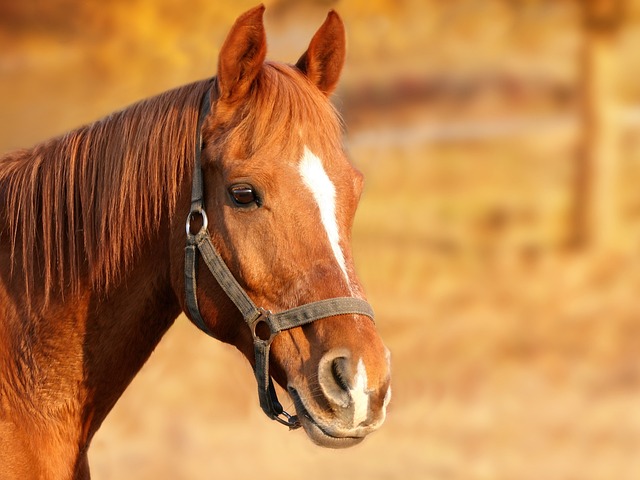Helping your horse gain weight is an important aspect of equine care, especially for underweight or malnourished horses. Proper nutrition plays a crucial role in maintaining their overall health and well-being. However, it’s essential to approach the process of weight gain with care and avoid certain common mistakes that can hinder progress or even have adverse effects on your horse’s health.
In this article, we will explore the key pitfalls to avoid when trying to help your horse gain weight, providing you with advice to ensure success while keeping your equine friend’s best interests in mind.
Neglecting a Veterinary Evaluation
Before embarking on a weight gain plan, it is crucial to consult with a veterinarian to assess your horse’s overall health and determine the underlying causes of weight loss. Several factors, including dental issues, parasites, metabolic conditions, or gastrointestinal disorders, can contribute to weight loss. Addressing these issues is vital for designing an effective weight gain strategy.
Inadequate Roughage Intake
Providing ample roughage is essential for healthy weight gain in horses. Make sure your horse has access to good-quality hay or pasture forage as well as clean water throughout the day. Avoid the mistake of relying solely on concentrates or grain-based feeds, as they may not provide the necessary fiber content for healthy digestive function. A diet rich in fiber helps maintain a healthy gut and enables the horse to absorb nutrients more efficiently.
Overloading on Concentrates
While concentrates and grain-based feeds can be useful for adding calories to your horse’s diet, it’s crucial not to overdo it. Overfeeding concentrates without balancing it with proper roughage intake can lead to digestive upset, including founder, colic, or laminitis. Consult with a qualified equine veterinarian to determine the appropriate amount of concentrates based on your horse’s individual needs.
Neglecting a Balanced Diet
Horses require a balanced diet consisting of the right proportions of proteins, carbohydrates, fats, vitamins, and minerals. Avoid the mistake of relying solely on high-fat or high-protein feeds without considering the overall nutritional balance. A deficiency or imbalance of essential nutrients can negatively impact weight gain and overall health. Consult with an equine vet to develop a customized diet plan based on your horse’s specific needs.
Example of a Nutrient-Dense Feed:
“Purina Equine Senior Horse Feed“: This specially formulated feed is ideal for horses requiring additional calories and nutrients for weight gain. It contains a balanced blend of high-quality grains, proteins, and fats to support healthy weight gain, while also addressing the unique nutritional needs of senior horses.
Inconsistent Feeding Schedule
Establishing a consistent feeding schedule is crucial for your horse’s digestive health and weight gain. Horses thrive on routine, so try to feed them at the same times each day. Irregular or sporadic feeding can disrupt their digestive system and hinder weight gain. Aim for at least three meals spaced evenly throughout the day to provide a steady supply of nutrients.
Ignoring Dental Health
Dental issues, such as sharp points, hooks on teeth, worn teeth, or missing teeth, can hinder your horse’s ability to chew and process food efficiently. Ignoring dental health can lead to reduced feed intake and poor weight gain. Regular dental check-ups and floating (filing down sharp points and hooks) should be part of your horse’s routine healthcare to ensure proper mastication and digestion.
Overlooking Parasite Control
Intestinal parasites can compromise your horse’s health and contribute to weight loss. Regular deworming is essential to control internal parasites and promote weight gain. Consult with your veterinarian to develop an appropriate deworming program based on your horse’s individual needs and local parasite prevalence. Yearly fecal tests are required to determine which medication is best to use for treatment or prevention.
Example of a deworming product:
“QuestPlus Dewormer“: This broad-spectrum deworming medication is highly effective in controlling a wide range of internal parasites in horses. It provides comprehensive protection and is recommended for regular use as part of a veterinarian-recommended deworming program.
Overexertion and Stress
Overexertion and excessive stress can impede weight gain in horses. Avoid pushing your horse too hard during exercise or training, especially while they are trying to regain weight. Provide a suitable balance of exercise and rest, allowing your horse to recover and build muscle gradually. Minimizing stress factors in their environment, such as social interactions or changes in routine, can also positively impact weight gain. 1 hour per day of exercise is great to help build and maintain a healthy confirmation on your horse.
Achieving a Healthy Weight: A Balanced Approach for Your Horse’s Well-Being
Helping your horse gain weight requires a planned approach that considers their overall health, nutrition, and management. By avoiding these common mistakes, such as neglecting veterinary evaluations, providing inadequate roughage, overloading on concentrates, neglecting a balanced diet, inconsistent feeding schedules, ignoring dental health, overlooking parasite control, and subjecting your horse to excessive stress, you can optimize their weight gain journey and ensure their well-being. Always seek professional guidance from a veterinarian to develop a tailored plan that meets your horse’s specific needs. With patience, proper care, and attention to detail, you can help your horse achieve a healthy weight and thrive.
